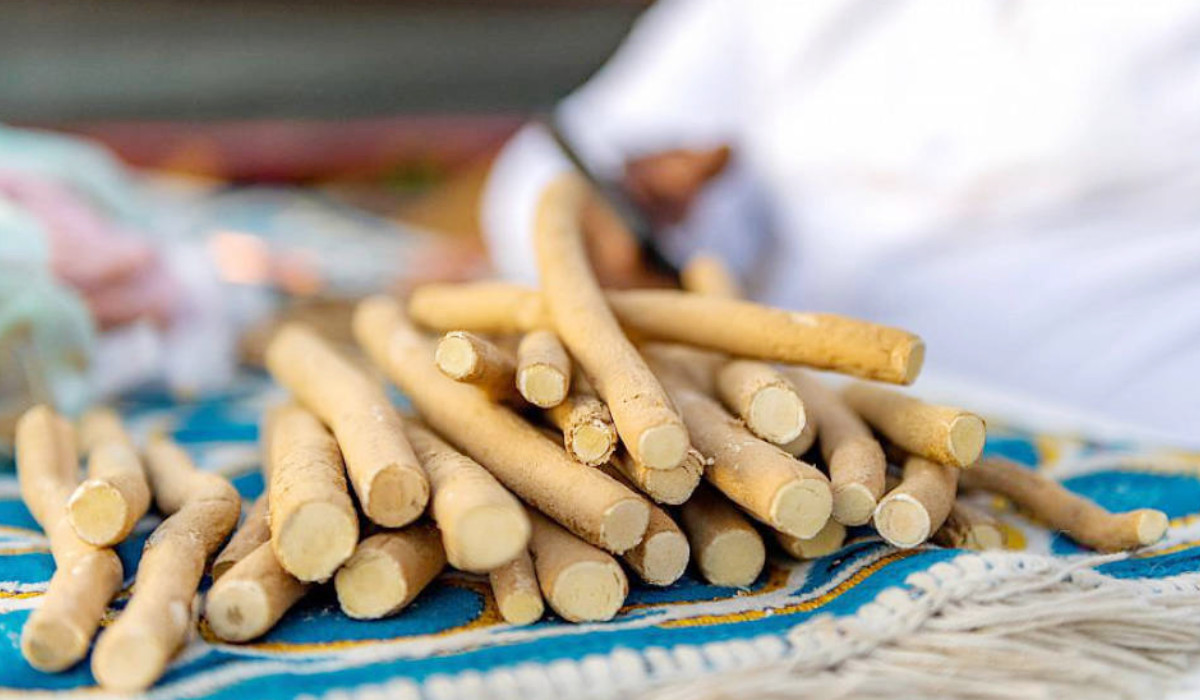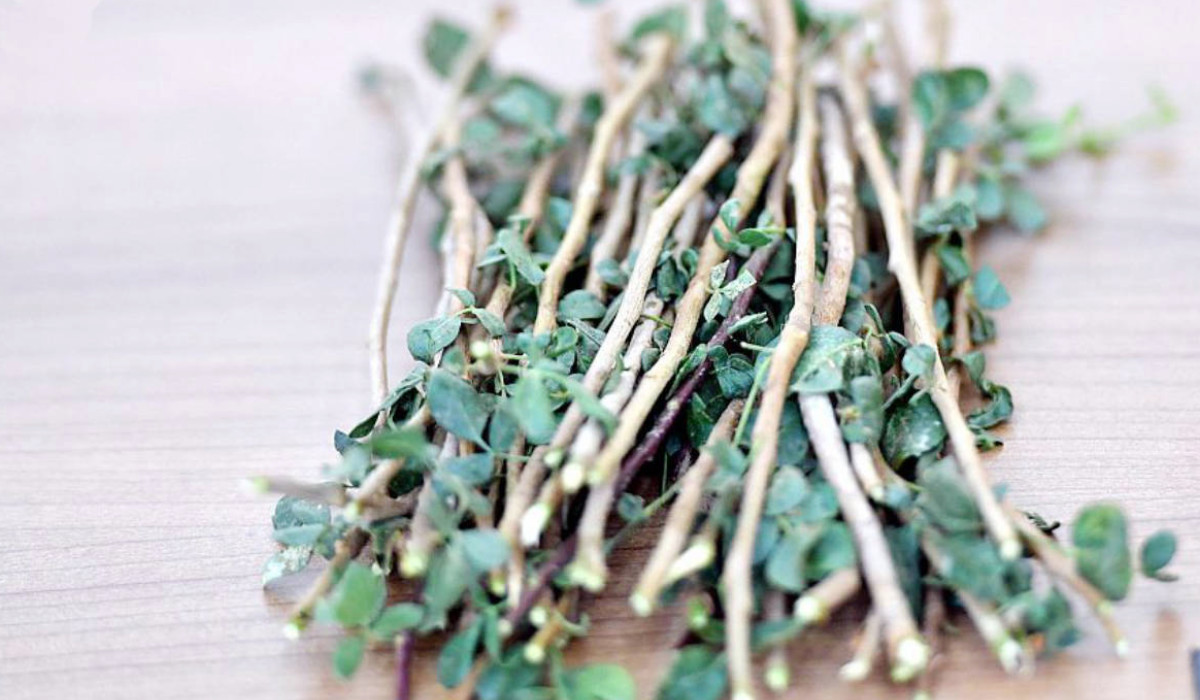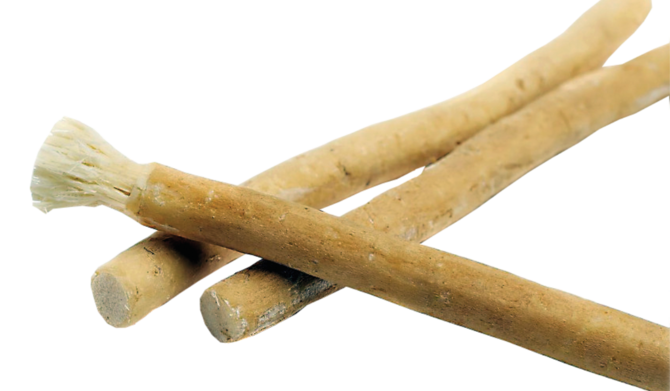RIYADH: Muslims around the world observe the fast during Ramadan, abstaining from all food and drink from dawn to dusk.
This means that we are more prone to bad breath, as we produce less saliva during fasting to shield us from oral germs. Saliva plays an essential role in protecting our mouths from bacteria, as well removing food debris.
However, there is a solution — miswak. During Ramadan, those fasting use miswak, which is a traditional chewing stick, several times a day to keep their mouths fresh and maintain dental health.

Miswak has gained widespread recognition, with the World Health Organization recommending the use of miswak for oral hygiene in both 1986 and 2000. (Supplied)
Dr Abdulaziz Al-Saif, a dentist in Riyadh, said: “To avoid bad breath, the magical miswak does wonders. Miswak is a natural toothbrush that, among other benefits, also creates a fragrance in the mouth.”
Fellow dentist Dr Aisha Ali Ahmad added: “Miswak eliminates bad odors and improves the sense of taste, sharpens memory, (brightens teeth), strengthens eyesight, assists in digestion and clears the voice.”
Various ahadith document the elevated status and significance of miswak. Abu Hurairah once narrated that the Prophet Muhammad said: “Were it not (for the fear) of overburdening my Ummah, I would have ordered them to (brush their teeth with) Siwak at every Salat.” (Sahih Muslim)
HIGHLIGHTS
• In Saudi Arabia, miswak is typically sourced from the Salvadora persica L. trees, known as arak in Arabic.
• To use a miswak, bite off around a centimeter of the twig and chew until it softens and forms bristles.
Aisha narrated that the Prophet said, “The siwak is a means of purifying the mouth and pleasing the Rabb.” (Nasai)
Abu Hurairah further narrated that the Prophet said once on a Friday, “O Community of Muslims! Allah has made this day an Eid for you, so take a bath and needfully brush your teeth with siwak.” (Tabarani, Majma’uz-Zawaid)

Miswak has gained widespread recognition, with the World Health Organization recommending the use of miswak for oral hygiene in both 1986 and 2000. (Supplied)
In Saudi Arabia, miswak is typically sourced from the Salvadora persica L. trees, known as arak in Arabic. This variety is also found in Sudan, Egypt and Chad. The bitter-tasting palm or olive trees are also used for miswak, while the neem tree is a popular option in South Asia.
In several parts of the Arab world, these trees are indigenous to arid regions and planting them reduces desertification in areas where little else can grow. This also helps communities to develop a sustainable income while preserving an important part of their cultural heritage.
Miswak has gained widespread recognition, with the World Health Organization recommending the use of miswak for oral hygiene in both 1986 and 2000.
An international report concluded further research was needed to document the benefits of the miswak. There is now increasing scientific evidence that it has medicinal properties, helping to fight plaque, receding and bleeding gums, tooth decay and more.
A study conducted by a panel of dentists at King Saud University said: “The repeated process of chewing sticks releases fresh sap and silica (a hard glossy mineral), which acts as an abrasive material to remove stains.”
The study also found the beneficial effects of miswak for oral hygiene and dental health were equal to, if not greater than, those related to the use of toothbrushes and paste. The research identified 19 natural substances found in miswak that benefit dental health.
Natural antiseptics kill harmful microorganisms in the mouth, tannic acids protect gums from disease, and aromatic oils increase salivation. The study added “the miswak’s bristles are parallel to the handle rather than perpendicular, and can reach more easily between the teeth, where a conventional toothbrush often fails to reach.”
To use a miswak, bite off around a centimeter of the twig and chew until it softens and forms bristles. This process can be speeded up by dipping the end in water to separate the fibers. Once bristles are formed, the miswak can be used like a regular toothbrush, without paste.
Using miswak is an ancient practice in Saudi Arabia, the Middle East and North Africa, and many Asian countries.
Muslims use it several times during Ramadan, before sleeping, at sahoor, during wudu (ablution before prayers), at mealtimes during the night, before reciting the Holy Qur’an, when undertaking a journey, and after waking up in the morning.
Sales of miswak increase dramatically in Saudi Arabia during the holy month. Abdullah Ahmed, a miswak seller in the capital, said: “I am expecting sales to rise by almost 300 percent.”


























